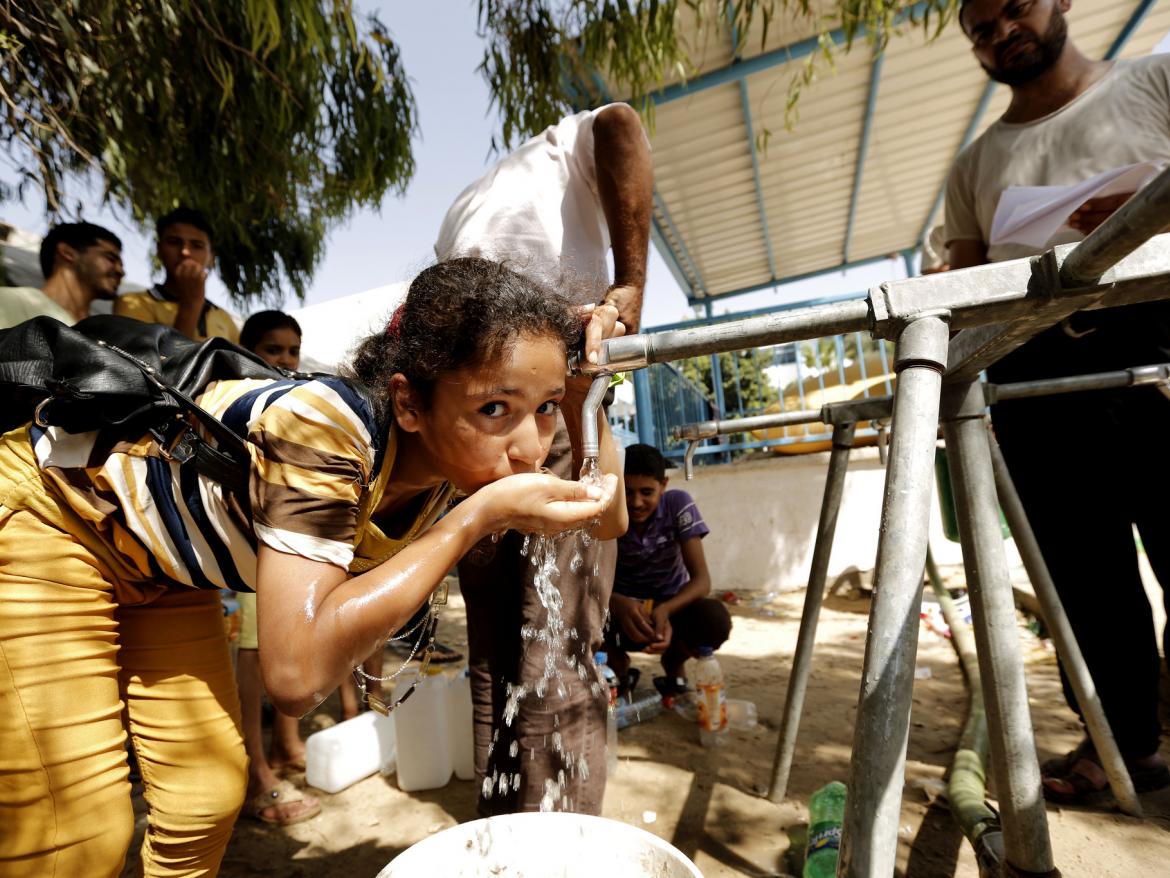Over 2 million Palestinian civilians in Gaza are facing a human-made humanitarian catastrophe, with famine and disease spreading due to lack of aid access. The largest aid operation in Gaza—the United Nations Relief and Works Agency for Palestine Refugees in the Near East (UNRWA)—has been nearly paralyzed by U.S. funding cuts. Restoring this vital funding is a critical, common-sense step toward alleviating suffering and promoting stability in the region.
UNRWA: A Lifeline for Palestinian Refugees
For decades, UNRWA has provided essential services to Palestinian refugees, including food, healthcare, education, and shelter. It operates in Gaza, the West Bank, Syria, Lebanon, and Jordan, supporting millions of individuals displaced by conflict.
In Gaza, UNRWA is the backbone of all aid delivery, offering lifelines to communities struggling with the aftermath of repeated conflicts and systemic deprivation. Its work is not only humanitarian but vital for maintaining regional stability.
The U.S. Funding Freeze: A Humanitarian and Strategic Mistake
In January of 2024, the Biden administration paused all US funding to UNRWA following Israeli allegations that a small number of UNRWA staff took part in Hamas’ horrific Oct. 7 attacks. This decision has left Gaza’s population without critical aid, worsening the humanitarian crisis. Hospitals are overwhelmed, and food, water, and medicine are scarce. The U.N. has warned of a looming public health disaster, including the spread of diseases like polio.
While UNRWA immediately acted on these allegations, including firing implicated staff and strengthening oversight mechanisms, no substantive evidence has been provided to justify these sweeping funding cuts. UN Secretary-General António Guterres ordered an investigation, and UNRWA has implemented recommendations to bolster accountability and neutrality.
Despite these steps, and an ever-worsening humanitarian crisis in Gaza, the U.S. remains the only major donor to withhold funding. Allies like the United Kingdom, Canada, and Germany have resumed support, recognizing UNRWA’s critical role in addressing Palestinian refugees’ needs.
Growing Consequences Across the Middle East
The consequences of defunding UNRWA extend far beyond Gaza. UNRWA also supports millions of refugees in the West Bank, Syria, Lebanon, and Jordan. Without it, these regions face further destabilization, which could exacerbate violence and displacement. A deteriorating humanitarian situation risks broader instability, threatening U.S. security interests in the Middle East.
A Legislative Path Forward
The UNRWA Funding Emergency Restoration Act, introduced by Sen. Peter Welch (VT) and Reps. Andre Carson (IN-7), Pramila Jayapal (WA-7), and Jan Schakowsky IL-9), seeks to repeal restrictions on U.S. funding for UNRWA and urge the administration to resume support.
Restoring U.S. funding would align with international allies, uphold humanitarian commitments, and help address the dire needs of Palestinian refugees. Restoring UNRWA funding is more than a humanitarian imperative—it’s a matter of justice, dignity, and global stability. Cutting funding has exacerbated the suffering of millions.
Congress must act swiftly to pass the UNRWA Funding Emergency Restoration Act. The legislation is a vital first step in restoring humanitarian aid to Gaza and ensuring UNRWA’s continued ability to serve refugees across the region.
Resources
Join our email list!
Stay informed and stay active
